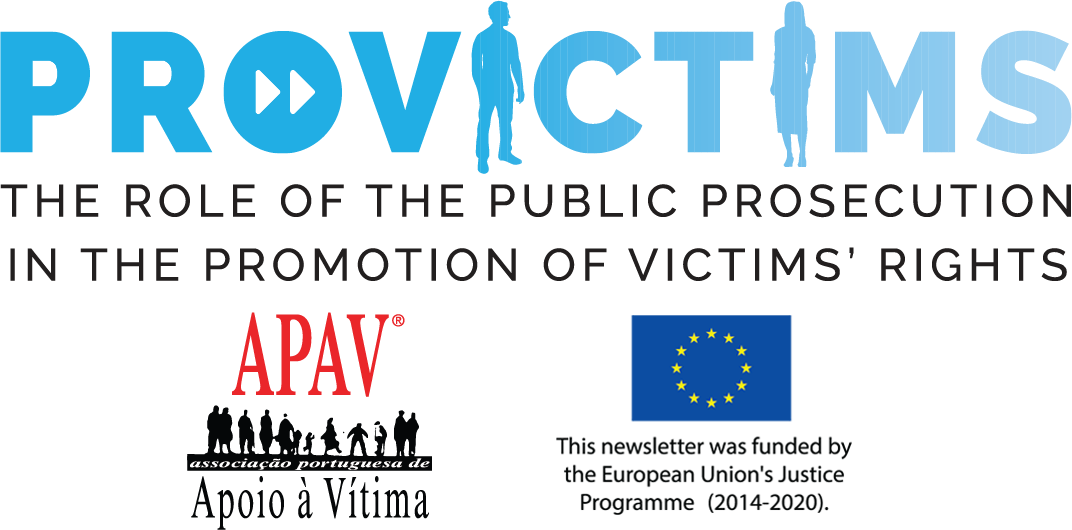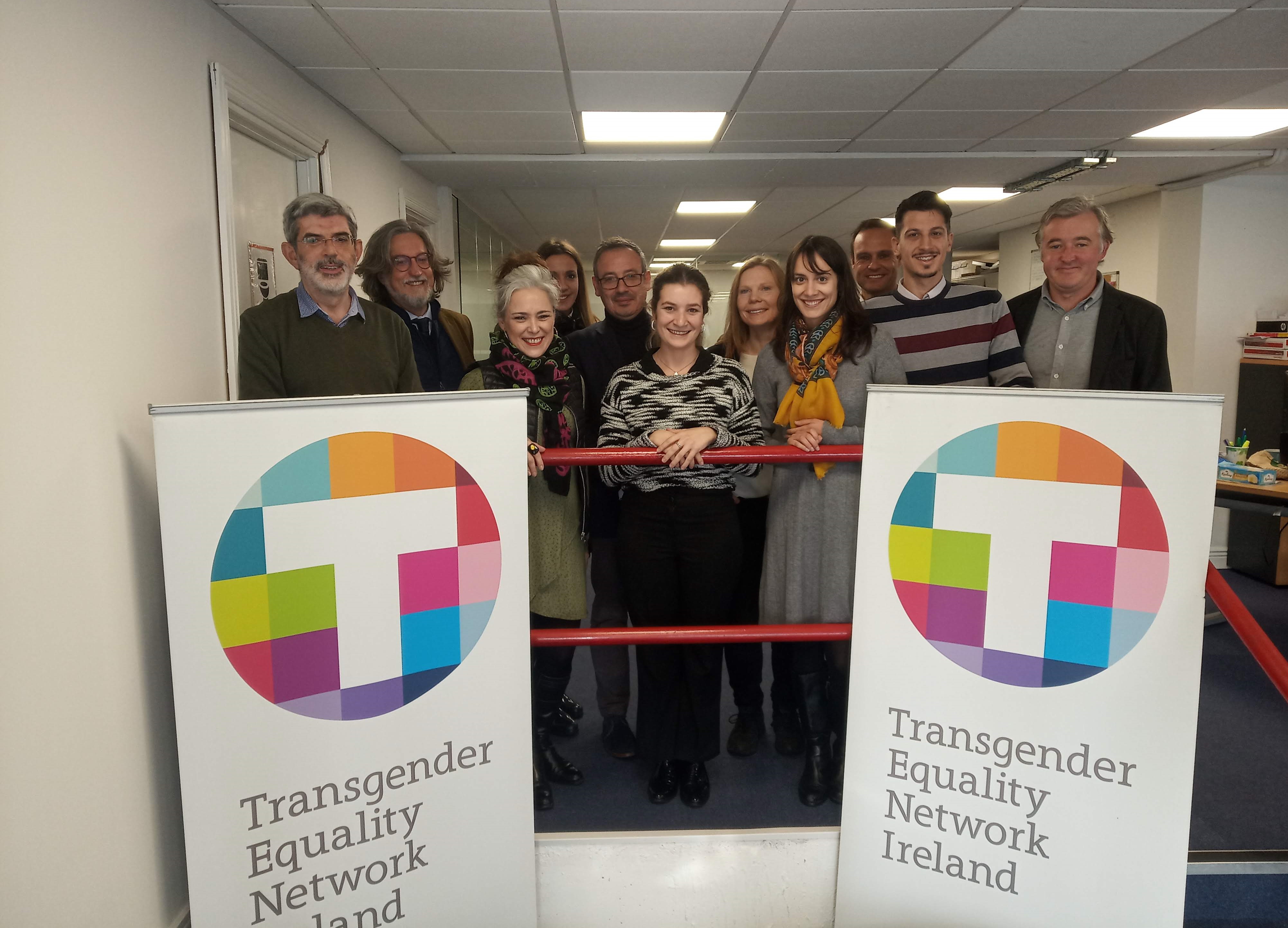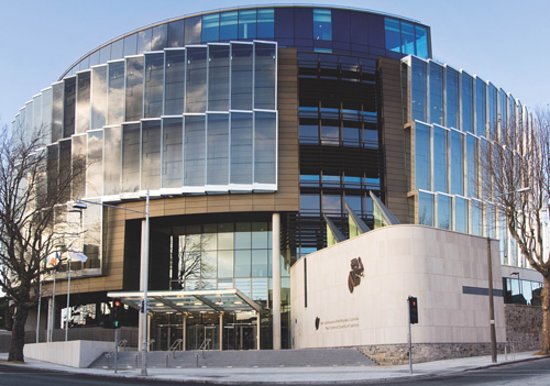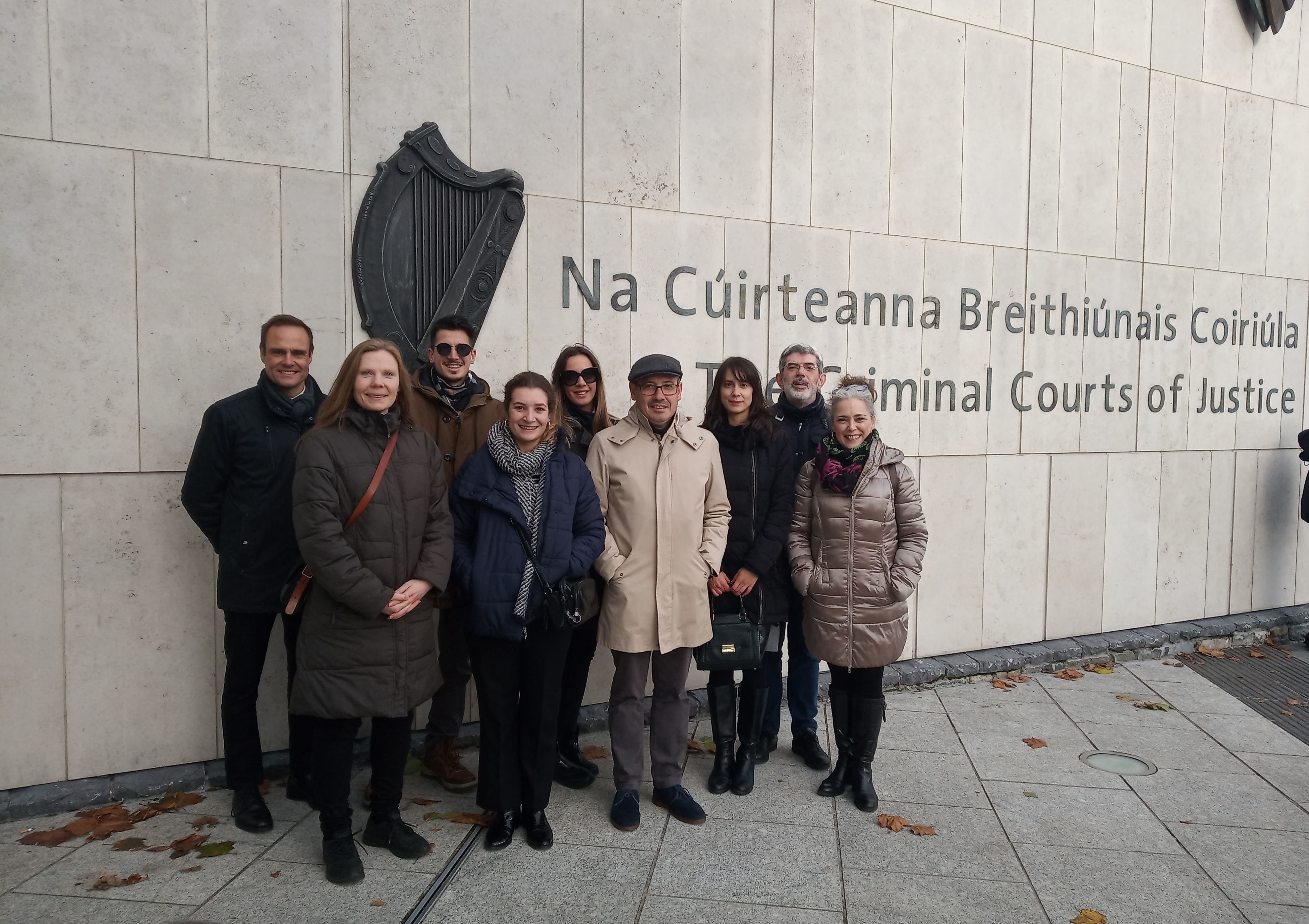PROVICTIMS_NEWSLETTER #3

| Project PROVICTIMS: the role of the public prosecution in the promotion of victims’ rights is a project co-funded by the Justice Programme of the European Union. The project’s main objective is improving the capacity of public prosecution services in addressing and ensuring the enjoyment of victims’ rights. If you wish to know more about the project and the partnership, read PROVICTIMS’ Newsletter Issue #1. To know more about the previous project’s activities, read PROVICTIMS’ Newsletter Issue #2. |
RECENT ACTIVITIES
Visit to Dublin
The PROVICTIMS team visited Dublin, Ireland, on the 14th and 15th of November. The visit was organised and hosted by the Irish Council for Civil Liberties, one of the partner organisations of the project.
The two-day visit to the city comprised three different activities which were co-organised by ICCL and the Portuguese Association for Victim Support (APAV): the third partners meeting, a technical visit to the Criminal Court of Justice of Dublin and a workshop.
Third partners' meeting
The first activity to take place was the third partners meeting. The meeting was held in the headquarters of Transgender Equality Network Ireland (TENI) to which we would like to express our gratitude for opening their doors and welcoming the PROVICTIMS’s team.
During the meeting, the team discussed the project’s implementation and focused on the future activities, such as the development of the final report, the dissemination activities and the final conference.
 |
Technical Visit
After the partners’ meeting, the project’s team visited the Criminal Court of Justice of Dublin. There, the team had the opportunity to attended court hearings, allowing the participants to see a courtroom, to understand who the different legal actors in Irish criminal proceedings are and to meet and briefly discuss with some of these legal actors, namely public prosecutors and lawyers.
The project team also had the chance to visit a court room where court staff explained and demonstrated two protection measures used in some Criminal Court of Justice’s hearings: the screen and video-link.
The screen is a portable screen that is assembled between the witness’s seat and the defendant’s seat. The aim of the screen is that the victim does not see, and is not visible to the defendant when giving his/her statement, while being visible to everyone one else in the court room, namely the judge, the defendant’s lawyers, the public prosecutors’ team, the judicial staff and the jury if there is one. For the screen to be used in a court session, the witness must make a formal request to the judge before trial. Nevertheless, until the visit’s date, this measure had only been applied in two cases because, usually, when the witnesses/victims are especially vulnerable or a child, a video-link is used.
The video-link consists in the live-transmitted statement of a child witness/victim or a especially vulnerable witness/victim. The witness/victim stands in a specially designed room where he/she can sit in front of a camera and a screen. Through the screen the witness/victim sees the court room and through the camera he/she is tapped. Multiple screens and speakers in the court room allow the witness/victim to be seen by all legal actors present at the room. Using the video-link, the witness/victim provides his/her statement, the judge, public prosecutors and the defendant’s lawyers can pose questions while the witness/victim is not obliged to be confronted with the defendant.
Divided into two groups, the project’s team had the chance to experience in first-hand the functioning of video-link by visiting the room where the witness/victim provides his/her statement. This room is located at the victim’s suite – an area of the Criminal Court of Dublin specifically destined to victims of crime and their family and friends who are waiting to provide their statement either through video-link or in person at the court room.
  |
Workshop: Victims' Rights and the Role of the Prosecutor
The visit to Dublin was completed with a one-day workshop organised by ICCL which brought together the project team, representatives of the An Garda Síochána, the Office of the Public Prosecutor and civil society’s organisations.
The workshop was held at the Irish Human Rights and Equality Commission and the programme was divided into three sections. In these sections, key-note speakers shared their knowledge on victims’ rights, legislation and practices concerning the role of the Office of the Public Prosecutor and the work of victim support organisations, before, during and after the trial.
Each of the speakers’ presentations was followed by debate with the participants and these moments were particularly important for the exchange of knowledge and experiences, not only between Irish stakeholders but also with the project partners who had the chance to explain some details of their national legal framework and practice.
The workshop was a success not just by building these bridges between different stakeholders and by providing the forum to discuss victim’s rights, but also because the media coverage secured by ICCL’s dissemination efforts brought about funding opportunity for CARI, a specialised support organisation that provides support and counselling to children and their families, particularly to the project presented by CARI’s representative at the workshop: the Courthouse Dogs project.
This event is an example on how mutual learning opportunities can also constitute forums for promoting and call attention to victims’ rights.
PROVICTIMS FINAL REPORT

As announced in the last issue of the PROVICTIMS Newsletter, the Centre of Investigation for Criminal Law and Criminal Sciences of the Faculty of Law of the University of Lisbon, one of the partnership members, developed the PROVICTIMS questionnaire which was disseminated among Public Prosecutors and Victim Support Workers in the partnership countries and other Member States of the European Union.
The collected answers will build upon the information already gathered by the project team and will be one of the sources of the PROVICTIMS Final Report.
This report aims to analyse the role of Public Prosecution Services in the promotion of victims’ rights and to put forward practical recommendations to Public Prosecutors and other professionals having contact with victims, for example, victim support workers.
The Final report is currently being developed by the team of the Centre of Investigation for Criminal Law and Criminal Sciences, it will then be revised by all partners and translated into Croatian, Portuguese and Spanish.
At the end of the project, the Final Report will be available online and in print.
Thank you for reading Project PROVICTIMS Newsletter!
If you wish to know more about the Project contact the Project Team via email to
The content of this page represents the views of the author only and is its sole responsibility. The European Commission does not accept any responsibility for use that may be made of the information it contains.